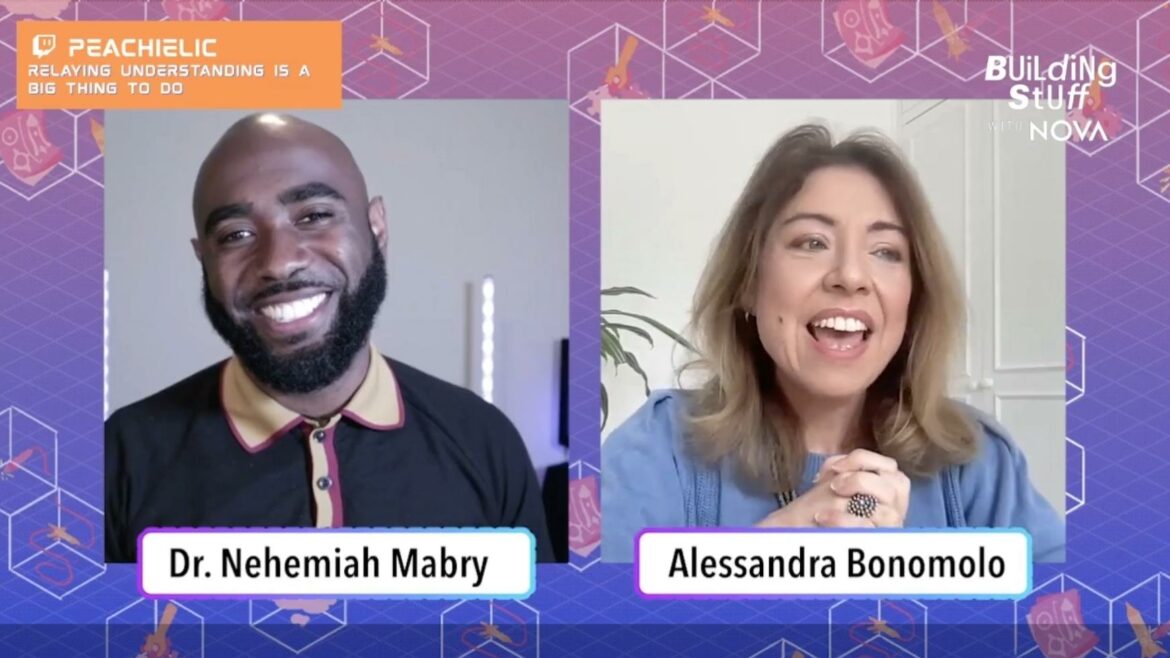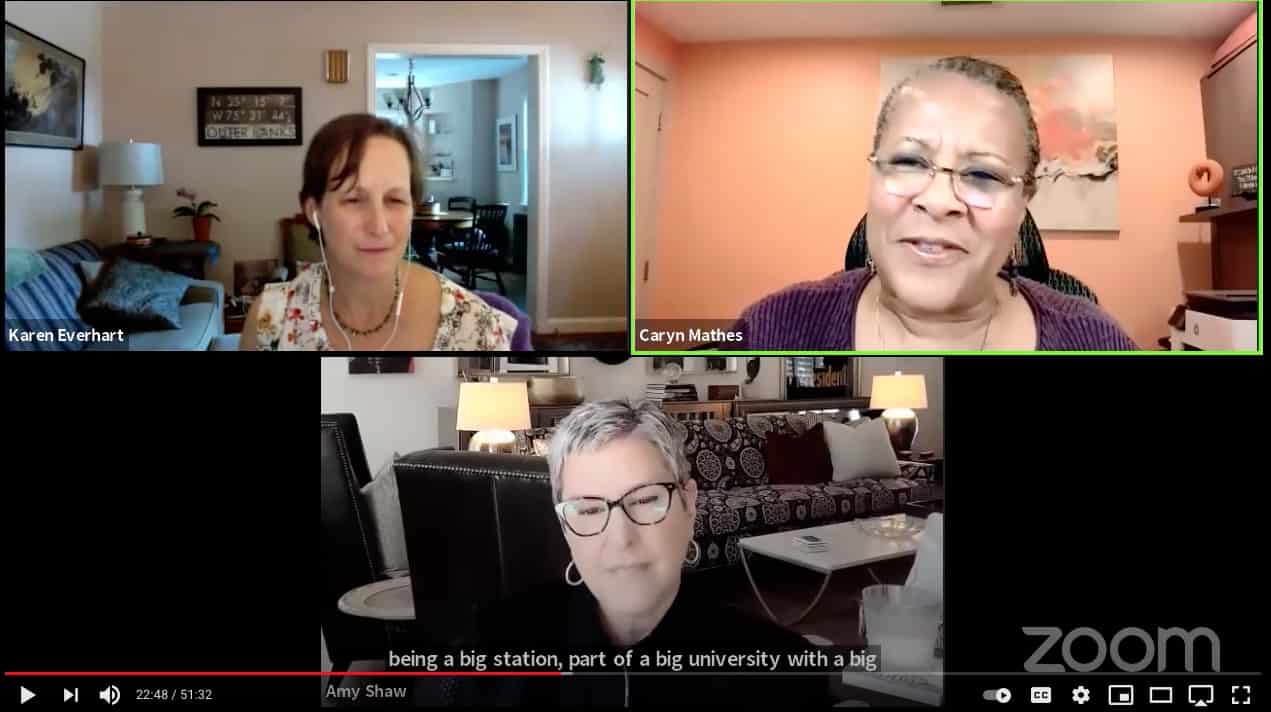‘Nova’ marks 50 years with blend of new and old programming about engineering, space

Nova
Host Nehemiah Mabry interviews Alessandra Bonomolo, producer of "Why Bridges Collapse," on Wednesday's "Building Stuff with Nova."
When Nova debuted, humans had landed on the moon only five years earlier.
Fifty years later, the PBS science program is exploring corners of the universe, and even aspects of life on Earth, that were unfathomable when it began.
To celebrate a half-century as a fixture on public TV, Nova will roll out two major programs, including its first use of the streaming platform Twitch and other interactive activities.
Nova’s co-EPs, Julia Cort and Chris Schmidt, said they’re looking forward to trying new ways of communicating science to the public.
“I think that Nova has this amazing history and legacy that we’re really excited and proud to be continuing,” Cort said.
“Building Stuff,” a new project on engineering funded by the National Science Foundation, mixes traditional documentaries with new interactive programming. The project launched June 3 with a daily livestream on Twitch that will run until the release of a three-part miniseries.
Through October, the Twitch audience will collaborate with engineers in the studios of GBH, Nova’s producing station, to design and build an engineering-themed escape room.
During a four-night finale, the Twitch audience can work with players in the studio to solve engineering-themed puzzles in the escape room.
The hourlong Twitch show is hosted by science communicator and former NASA engineer Nehemiah Mabry every weekday at 1 p.m. Eastern time.
In the first week’s livestreams, Mabry played a bridge-building video game, watched the Nova documentary “Why Bridges Collapse,” interviewed the documentary’s producer and built a model of the Golden Gate Bridge.
The Twitch program is also part of a research study between Nova and NORC at the University of Chicago on interactive science learning.
Cort said the research is investigating what it’s like “to just watch something about engineering versus participating on Twitch and creating something and building something together.”
The “Building Stuff” miniseries of three hourlong episodes will air Nov. 13 through 27 on PBS.
A ‘sense of hope’
Schmidt said that creating content about engineering is challenging because the field is large and ubiquitous.
“These are three films that endeavor to kind of wrap our arms completely around the idea of engineering by really showcasing the fact that it’s a process, not a thing, and that it’s something that human beings do innately,” Schmidt said. “And that no matter what you look at around you today that seems very contemporary, everything has deep roots into the past you can trace.”
Cort said she thinks that Nova’s audience is particularly interested in human innovation.
“I think what Nova brings to people is this sense of hope that human beings can really figure difficult stuff out, can answer challenging questions and solve big problems,” she said.
A five-part series about the solar system will air starting in October. A collaboration with BBC Studios, it follows earlier documentaries about space that the broadcasters have produced together.
Cort said the series will “look at all the cool stuff that’s not the planets. It’s really all the weird moons and asteroids and things in between, and the things that are way out in the solar system.”
“Including a mysterious object so far out, it’s actually called ‘FarFarOut,’” Schmidt added.
Each episode will explore a different kind of astronomical object: “Storm Worlds,” “Strange Worlds,” “Volcano Worlds,” “Icy Worlds” and “Wandering Worlds.”
Cort and Schmidt said they think Nova has succeeded in sparking viewers’ curiosity about science in its 50 revolutions around the sun.
“We succeed when we reach the maximum number of people,” Schmidt said, “because it’s not just the stories themselves that are engaging people with science, but at the core of every approach we take to telling the stories in these films is to get inside the process by which the science was done.”
Cort added that she thinks Nova has provided a unique service to TV audiences.
“No one tells these stories about what science can reveal, and sometimes just what science can reveal is incredibly cool, about black holes or the universe or quantum mechanics,” she said. “But part of what we reveal is how smart people can be and how working together, they can actually do amazing things.”
Correction: An earlier version of this article misidentified the premiere date for “Building Stuff” on Twitch. It was June 3, not May 3. That version also mischaracterized plans for the finale of the escape room. The public will be able to interact with players in GBH’s studios via the Twitch stream, but in-person gameplay will not be open to the public.






